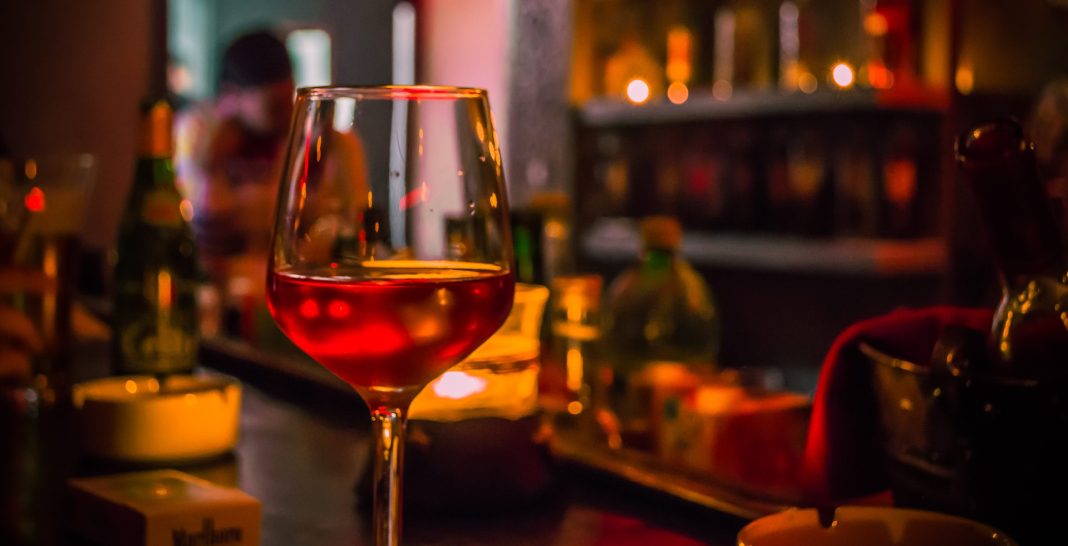CW: Discussion of alcohol abuse
Since I arrived at Oxford, alcohol has been woven into the fabric of my university experience. Drinking isn’t just expected – it’s encouraged, celebrated, and deeply embedded in student culture. Nights out, pub trips, drinking societies, formals: Oxford demands drinking, and I’ve obliged, over and over again.
Drinking seems essential to having a good time. It’s there after a long day, a social glue that binds people together. It’s a rite of passage, a measure of belonging. At university, you’re supposed to drink, and you’re supposed to drink a lot.
You’re praised for it. Being a ‘heavyweight’ is a badge of honour. If you drink heavily, you’re a legend. If you say no, you’re no fun. The pressure is relentless when you’re already overworked and overwhelmed and looking for an easy fix, and the embarrassment of being the only one without a drink in hand is enough to push you back into the cycle, again and again.
Oxford is a place where pressure is constant and relentless. The eight-week terms condense what should be months of study into an exhausting sprint, where essays seem to be due at an impossible pace, and the expectation is always that you will have read more, thought harder, and argued better than your peers. The workload is overwhelming, but the culture is such that admitting you’re struggling feels like admitting failure. So, instead of slowing down, you speed up.
Alcohol offers an escape from the suffocating perfectionism. After a day of tutorials where every sentence feels scrutinised and every idea must be defended, the prospect of shutting off your brain for a few hours is irresistible. A trip to the Four Candles with your friends turns the imposter syndrome down to a whisper and makes the academic intensity feel like background noise rather than a crushing weight. It’s the pressure valve that allows students to keep going.
But in a place where overworking is normalised, so is over-drinking. Post-essay drinks turn into post-tutorial drinks, which turn into “just one to take the edge off.” The college bar is always there, the pub is always full, and the idea of saying no feels like opting out of the student experience.
The toll of drinking isn’t just social – it’s financial, physical, and mental. I’ve spent money I don’t have on overpriced bottles of wine because I was too hungover to get to the cheaper shops earlier in the day. I’ve justified drinking over food because I ‘needed’ the bottle more than I needed my dinner.
Academically, it wrecks you. I can have a 10am I’m terrified of, not because of the work, but because I don’t know if I’ll be able to wake up. I’ve set four alarms just to drag myself out of bed. Once, I took cider in a water bottle to a tute because my accent had been mocked in the last session, and I needed the confidence to get through it. I’m never caught.
I can deal with anything, I tell myself – so long as I get to drown my brain again.
Despite everything, I can’t imagine myself stopping. The idea of sobriety frightens me. If I stop drinking, will I still be fun? Will I still belong? The scariest part is not knowing who I am without alcohol. I’ve rationalised it in every way possible. I don’t wake up in shop doorways, I don’t drink in the mornings, I don’t get into fights. I know my wines, I’m ‘sophisticated’ and I’m fine. But I’ve also taught myself that an £8 Mendoza Malbec is somehow essential. I’ve justified my drinking with knowledge, with culture, with class. I can do that at Oxford.
I read self-help books. I was once proud of myself for reading two books on the topic; only to realise I’d read it before and forgotten about it in the morning. I bought smaller wine glasses to drink less. They’re still in the box. I won’t go to a meeting. I’m too afraid they’ll tell me abstinence is the only way forward. If I can’t imagine a life without alcohol, how can I possibly stop?
How do we fix a culture that thrives on excess? Universities claim to care about student wellbeing, yet there are no meaningful conversations about alcohol unless someone reaches crisis point, and by then, it’s often already too late. What would it take to change things? Would students drink less if social events didn’t revolve around alcohol? Would we think differently if heavy drinking wasn’t normalised as ‘part of the experience’? And what happens to those of us who don’t know how to function without it? I don’t know the answers. I just know I’d like to.
If you have been affected by the issues discussed in this article, support is available. Please consider reaching out to the following resources for help:
- Mind (Mental Health Support): https://www.mind.org.uk/
- NHS Alcohol Support: https://www.nhs.uk/live-well/alcohol-advice/alcohol-support/
- Drinkaware: https://www.drinkaware.co.uk


